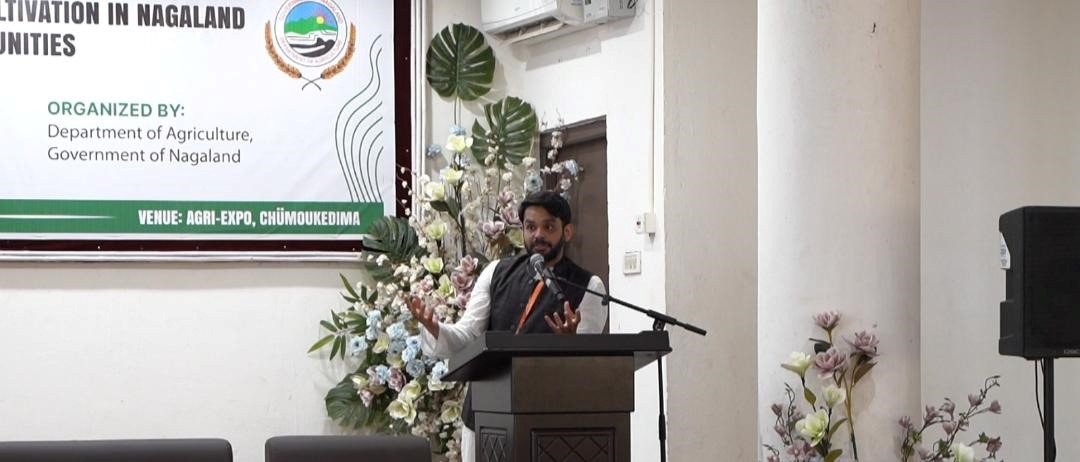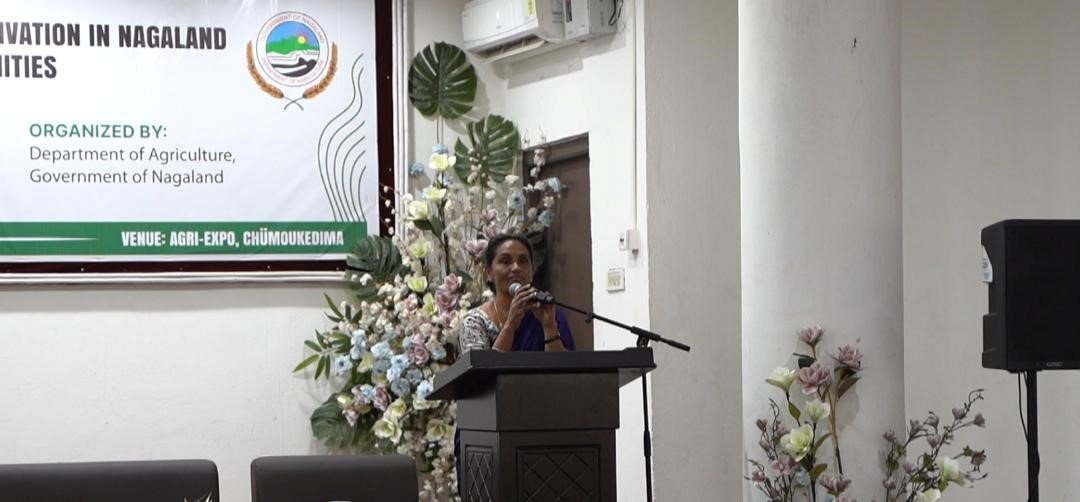Amid rising public concern and misinformation surrounding oil palm cultivation in Nagaland, the Department of Agriculture organized a one day workshop on ‘Sustainable oil palm cultivation: Challenges and opportunities’ at Angh house, Agri Expo, Chümoukedima on May 23.
The workshop featured presentations by key experts including Deputy Director at the Roundtable on Sustainable Palm Oil (RSPO) Ashwin Selvaraj and Principal Scientist (Agronomy) from ICAR-Indian Institute of Oil Palm Research (IIOPR), Andhra Pradesh Dr. K. Manorama. Both experts addressed environmental, economic, and policy-related aspects of oil palm cultivation, aiming to dispel prevailing myths and promote informed discussion.
Discussions focused on India’s smallholder-driven oil palm model, which contrasts sharply with the large-scale monoculture plantations in Southeast Asia. Speakers emphasized that with proper scientific practices, oil palm cultivation in Nagaland can be ecologically viable and economically beneficial.
The RSPO representative detailed global certification standards that prioritize sustainability, including zero deforestation, labour rights protection, and the importance of informed consent from indigenous communities. He highlighted the government-backed National Mission on Edible Oils – Oil Palm (NMEO-OP), which aims to increase India’s self-sufficiency in edible oil production. Under this mission, 30,000 hectares in Nagaland have been earmarked for cultivation, with Rs. 146.61 crore allocated to support implementation.
Dr. Manorama provided scientific insights, highlighting oil palm’s efficiency in land use, water consumption, and carbon sequestration. She presented GIS-based mapping results identifying over 51,000 hectares suitable for cultivation in Nagaland, with Dimapur, Wokha, and Tuensang among the leading districts.
Download Nagaland Tribune app on Google Play

She also addressed common environmental concerns, clarifying that oil palm in the Northeast is largely rainfed and can be integrated with other crops. Misconceptions linking oil palm to massive deforestation and water depletion, often based on Southeast Asian models, were labeled inapplicable to the Indian context.

The event also saw participation from officials including Deputy director of agriculture Ronchamo Kikon, who set the context by addressing the controversy around oil palm expansion in the state. He reiterated that the state’s strategy differs from those of countries like Malaysia and Indonesia, emphasizing a balanced approach between economic development and ecological sustainability.
The workshop concluded with an interaction session between ICAR-IIOPR scientists and attendees, followed by closing remarks from Agriculture production commissioner Wezope Kenya and a vote of thanks by Additional director Benjamin Lotha.

